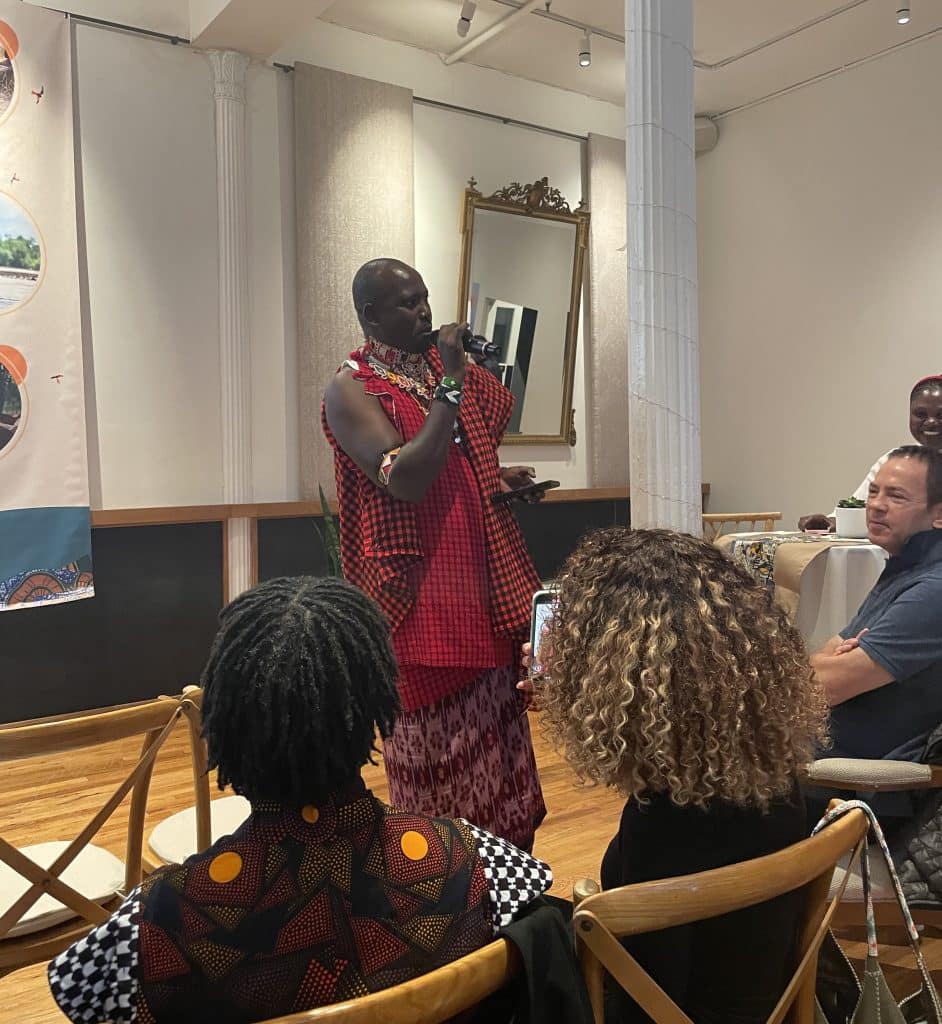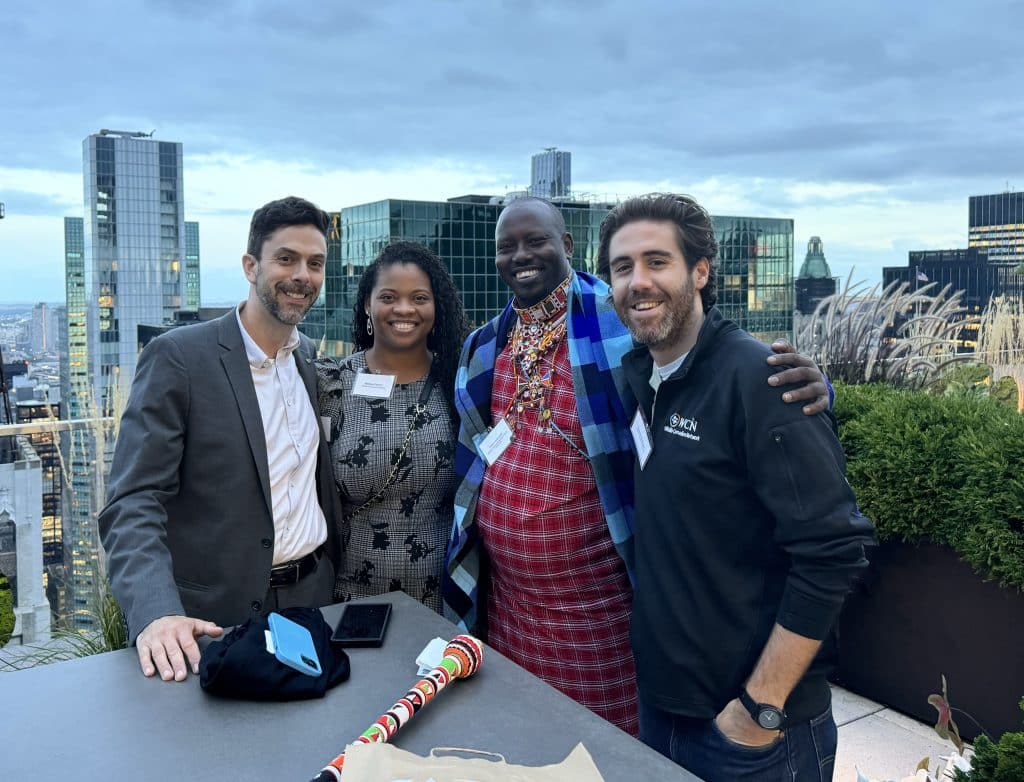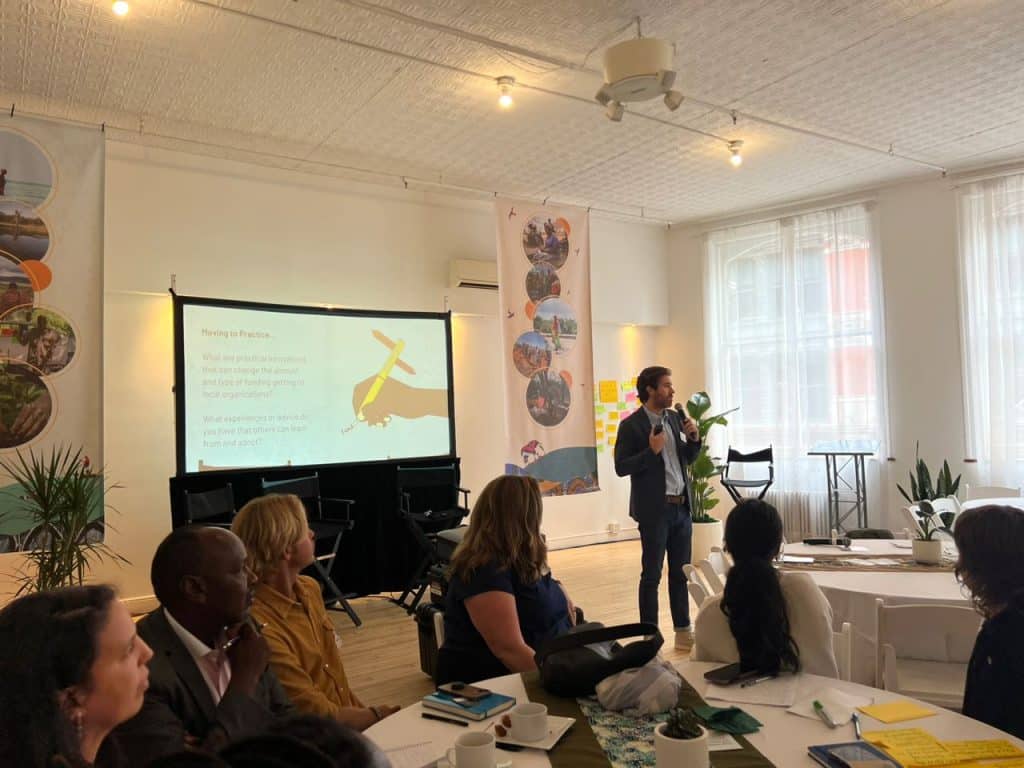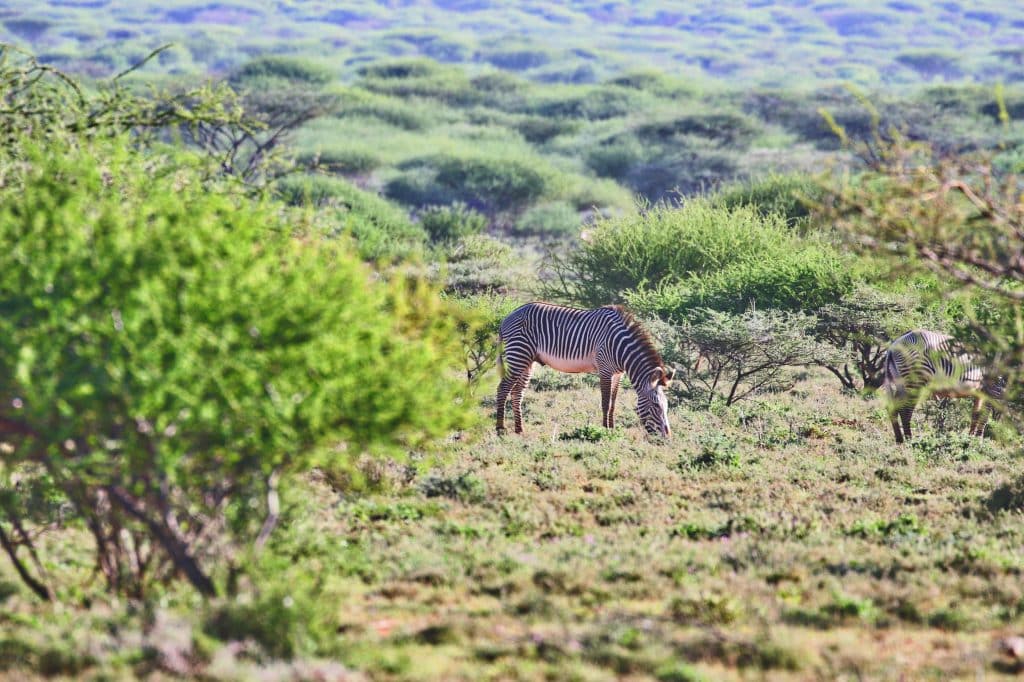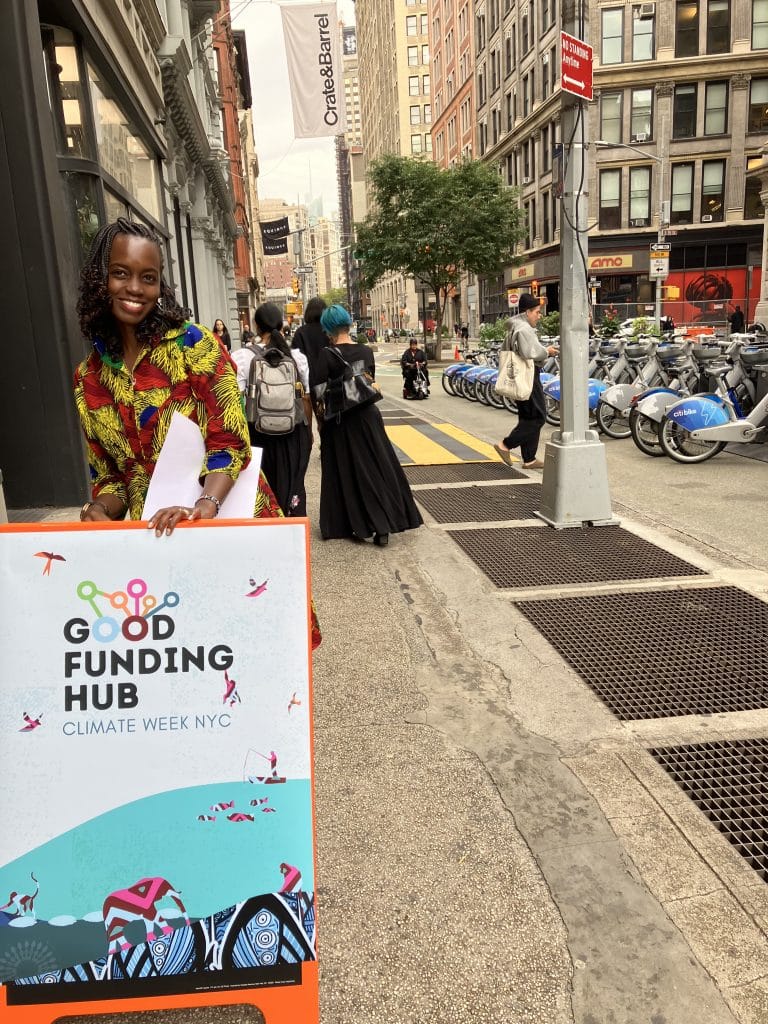From September 23-27, Wildlife Conservation Network (WCN) staff, Partners, and grantees gathered with governments, practitioners, and funders in New York City for the annual United Nations General Assembly and Climate Week NYC 2024 to seek out solutions that can help people and our planet. While reaching new audiences through inspiring experiences like The ClimateMusic Project, Climate Week NYC made it clear that when it comes to climate action, it’s time to put people first and to free up long overdue climate finance to ensure front-line communities in climate hotspots are compensated for stewarding nature.
“Conservation and climate action are inseparable,” says Peter Lalampaa of the Grevy’s Zebra Trust. “Local conservation organizations play a vital role in addressing climate change and must be supported to implement impactful solutions.” Since the Paris Agreement, an international treaty on climate change, was adopted by the United Nations in 2015, there have been countless pledges and commitments to its overarching goal to hold “the increase in the global average temperature to well below 2°C above pre-industrial levels” and pursue efforts “to limit the temperature increase to 1.5°C above pre-industrial levels.” However, as difficult as it is to get global governments to set collaborative goals, it’s even more critical to turn those pledges into practice. And that’s exactly what WCN did during Climate Week NYC—by championing support for community-based conservationists who ensure wildlife and people coexist and thrive.
Research has shown that “natural climate solutions” rooted in resilient ecosystems can provide at least 30% of the emission reductions needed to reach global climate goals. These solutions, such as restoring grasslands in Northern Kenya, might not be shiny or new, but they are already working. Beyond climate change mitigation and adaptation, they have the added benefits of maintaining biodiversity, water and food security, disaster risk reduction, and respect for human rights and Indigenous self-determination. While nations across the world innovate and invest in rapid decarbonization of all sectors, it is imperative that we also invest in high integrity, high volume natural climate solutions, a win for both climate and wildlife.
Indigenous and local communities have long been stewarding nature, yet the conservation field has not always recognized their role. Local organizations understand the context of conservation, bring in resources and develop partnerships, provide mobilization, technical, and capacity support, and have an important role in advocacy. Giving more funding to these groups is about more than just conservation effectiveness—it’s also about equity, as many of them have historically been marginalized and excluded from conservation decision-making. This was a key message from the “Good Funding Hub,” at Climate Week NYC, where WCN co-hosted a series of events in collaboration with conservation peers, emphasizing that locally-led conservation champions are also climate champions.
Yet support to local organizations is slow to materialize across the climate philanthropic sector. Despite the important solutions that community-led conservation offers for people, wildlife, and our climate, it receives a mere fraction of the funds it needs to achieve even greater impact. Globally, initiatives led by Indigenous and local communities receive less than 1% of global climate funding, while local conservation organizations in Africa receive less than 10% of philanthropic funding invested on the continent.
The Grevy’s Zebra Trust is a prime example of how community-led conservation is an effective approach to not just biodiversity conservation but to so much more. How do you secure the future of one of Africa’s most endangered large mammals, a species with only an estimated 3,000 individuals remaining in the wild? You protect its habitat – its water resources, grasslands, and birthing areas. Rooted in Northern Kenya, the Grevy’s Zebra Trust is able to weave together culture, wildlife, women, governance, restoration, climate adaptation, and protecting and growing carbon sinks. At WCN, we believe that raising the profile of these impactful, holistic approaches to conservation across WCN’s Partner Network will unlock the resources they deserve.
Since 2002, the Wildlife Conservation Network has been a key catalyst for local conservation organizations working on behalf of people and wildlife. WCN acts as a fiscal sponsor, re-granter, and networking body, raising and disbursing funds for locally-led conservation initiatives, emphasizing support to local organizations and providing capacity support to help them become more impactful. In 2023, WCN raised over $50 million across its strategies, with a significant portion going to local organizations. This model approach from WCN was highlighted during Climate Week NYC at an event co-hosted with Maliasili and Synchronicity Earth called “From Pledges to Practice,” which marked the release of a collaborative report about shifting conservation funding approaches to better support local African organizations.
Early next year, all the world’s countries must submit new national targets to cut emissions of heat-trapping gasses. As described by Philip E. Davis, Prime Minister of The Bahamas, during Climate Week NYC: “The old playbooks, familiar arguments are no longer acceptable. The time for complacency is over.” There can be no sustainable future, no economic stability without investing in a healthy environment, shifting our world to one in which humanity thrives in harmony with nature, with healthy lands, water and oceans, with stable climate, and thriving wildlife.


